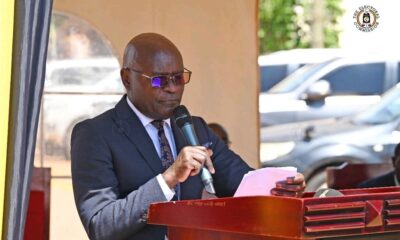Real Estate
Navigating Property Law and Land Ownership in Uganda

Navigating property law and land ownership in Uganda presents a unique legal framework influenced by the country’s history, customary practices, and modern legislation.
Understanding how land ownership operates in Uganda requires grasping the complex interplay between different types of land tenure, the role of the government, and the rights and obligations of landowners. These factors together shape the landscape of property law in Uganda and guide the procedures for acquiring, transferring, or protecting land.
Historically, land ownership in Uganda has been shaped by colonial legacies and customary traditions. The colonial period introduced formal legal structures that attempted to integrate and replace existing indigenous land systems. However, customary land ownership persisted, especially in rural areas where communities continued to rely on traditional norms for land access and usage. Today, this duality still exists, with both statutory and customary laws governing land in Uganda. This makes navigating property laws in Uganda more complex than in many other countries, as people must understand the coexistence of these systems.
Uganda’s Constitution and the Land Act of 1998 play a significant role in land governance. The Constitution recognizes four main types of land tenure: Mailo, Freehold, Leasehold, and Customary. Mailo land, a system introduced during the colonial period, grants individuals rights to own land indefinitely, but with limitations on the rights of tenants occupying that land.
Freehold tenure grants full ownership rights, allowing individuals or entities to use, transfer, and control the land without major restrictions. Leasehold tenure involves holding land for a specified period, typically under an agreement with the government or a private landowner. Customary tenure remains the most common form of landholding, especially in rural areas, and is governed by traditional practices. Customary land is often held communally, and transactions or usage rights are based on communal or family agreements.
The Ugandan government has sought to regulate land ownership and resolve disputes through legal reforms. The establishment of the Uganda Land Commission and district land boards aims to ensure equitable access to land and resolve disputes. The government has also tried to address issues of land grabbing, illegal evictions, and tenure insecurity by improving land registration and titling systems. The Land Act of 1998 introduced reforms to formalize customary ownership by allowing individuals to acquire certificates of customary ownership, making it easier for people to defend their property rights under the law.
However, land ownership in Uganda is not without its challenges. One of the primary issues is the high incidence of land disputes, which are often driven by unclear boundaries, overlapping claims, and a lack of formal documentation. Disputes between customary landholders and titleholders are common, particularly in areas where there is pressure for land development or investment. Additionally, women in Uganda often face significant barriers to land ownership due to traditional gender norms that limit their access to property, despite legal provisions that guarantee equal rights.
Foreign ownership of land is another complex area in Uganda’s property law. While foreigners are prohibited from owning freehold land, they can acquire leaseholds for up to 99 years. This restriction is meant to protect Ugandan nationals’ access to land and prevent foreign dominance in the property market. However, foreign investors are still able to engage in land transactions through long-term leases, which provide some level of security for investment purposes.
In conclusion, navigating property law and land ownership in Uganda requires a deep understanding of both statutory and customary systems. While recent reforms have aimed to streamline land governance and improve security of tenure, challenges such as disputes, gender inequality, and the complex interaction between customary and statutory laws persist. For anyone looking to acquire or deal with land in Uganda, it is essential to be well-versed in these laws or to seek legal guidance to avoid conflicts and ensure compliance with the country’s legal frameworks.


























